3 Nov 2023
Updated on January 28th, 2025
What Exactly is Virtual Healthcare? What Makes it Different From Telehealth?
Matthew Connor
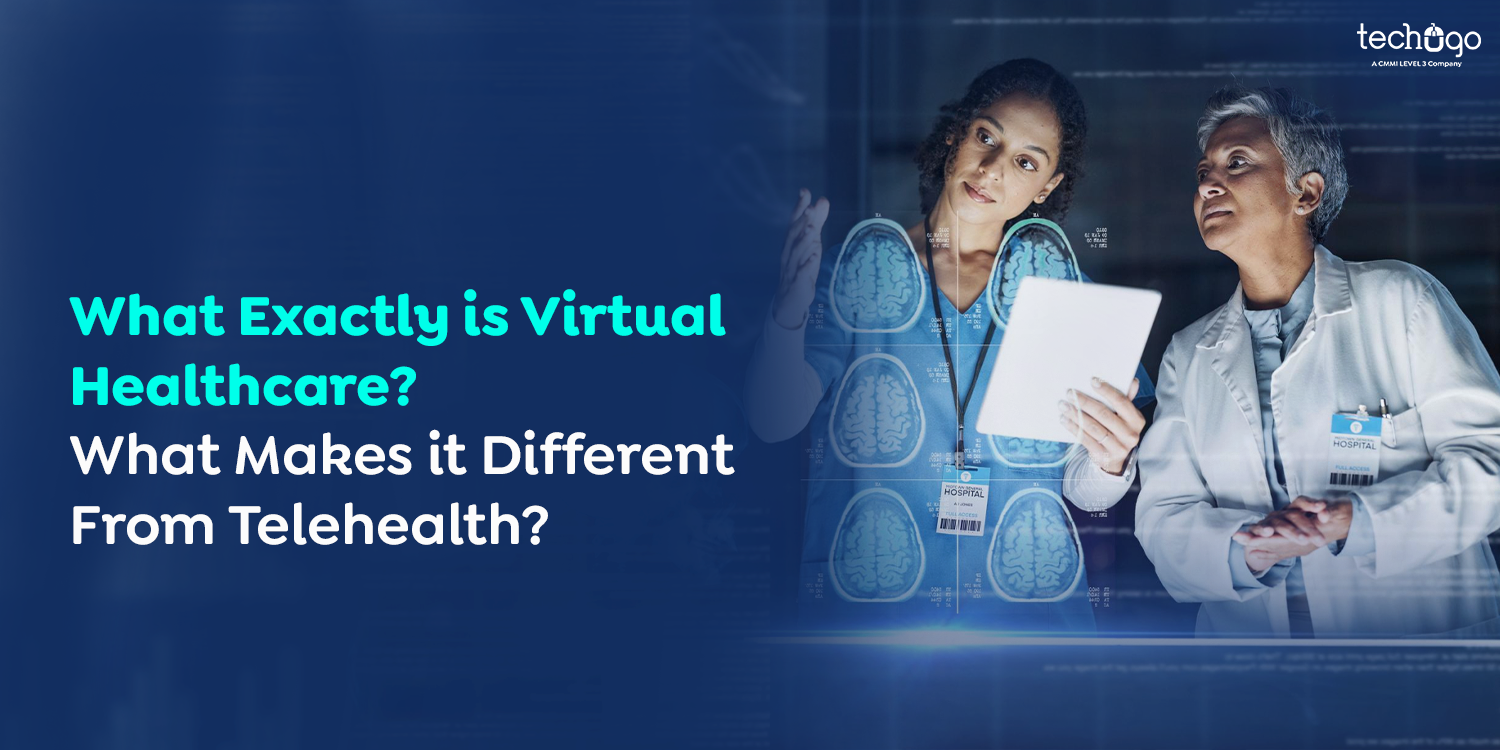
Healthcare has seen a significant transition in recent years owing to technological breakthroughs and changing patient requirements. In this progression, two phrases have acquired prominence: “Virtual Healthcare” and “Telehealth.” While they are frequently used interchangeably, there are slight but critical differences between the two.
The usage of virtual health app increased from 11% in 2019 to 76% in 2020.
Despite the dramatic title, there is little question that the COVID-19 epidemic has
demonstrated a significant shift in how medical treatment is delivered. It has achieved such traction that substantial investment in healthcare has begun to migrate to virtual healthcare. Rapid scaling of digital healthcare tools, healthcare systems, software, and apps has created a new wave of opportunities for start-ups looking to capitalize on developing potential in the industry. It ensures the future of Telehealth and your plans to expand telemedicine services. Let’s go through it again.
When you’ve decided to create your apps with the help of an Android app development company that can give you the best mobile app, you must first understand why you should invest in a virtual health app. Instead of analyzing your audience and learning what they want from your project, focus on virtual health and how it works.
What Exactly is Virtual Health?
Virtual health is a means of remotely providing healthcare services using digital and telecommunications technology.
You may approach healthcare professionals online using virtual health to examine, diagnose, monitor, and treat patients without the need for in-person visits.
In simple words, virtual healthcare refers to the use of traditional medical treatments remotely. In Internet meetings, the physicians consult with their clients.
Scroll down to find out how virtual health works!!
How Does Virtual Healthcare Operate?
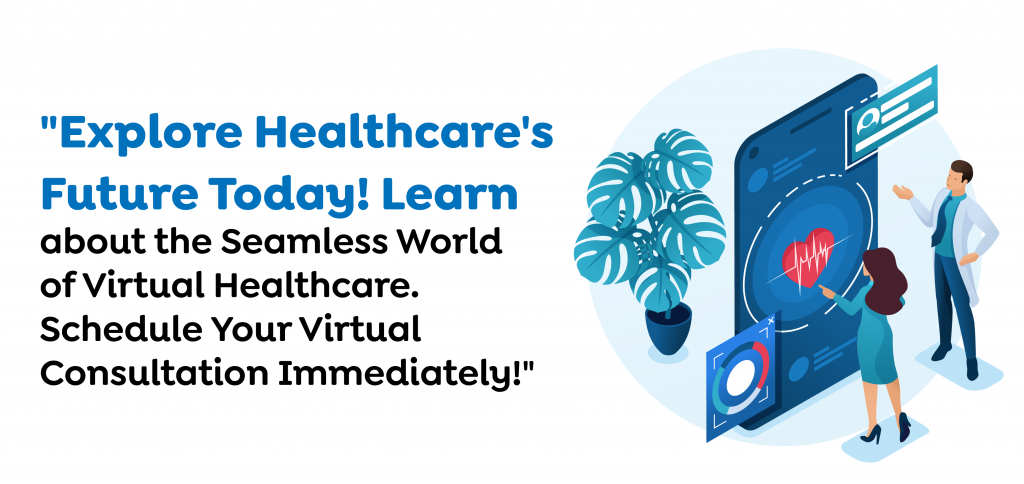
Rather than traveling to another location, a patient will speak with an outside medical specialist via a high-definition conference link at home. It will also make it easier for patients to get expert second views online.
So far, digital healthcare has been chiefly utilized for meetings, consultations, check-ins, and status updates. However, as technology advances, more severe disorders, such as diabetes, are already being influenced by digital healthcare.
The primary function of digital healthcare is to enable healthcare providers to use technologies to monitor health problems or treatments online. It has also been demonstrated that home patient monitoring is beneficial in treating patients with chronic illnesses and disorders, such as hypertension, where rehospitalizations often occur because of a lack of communication or openness regarding the patient’s health.
What is it is Telehealth?
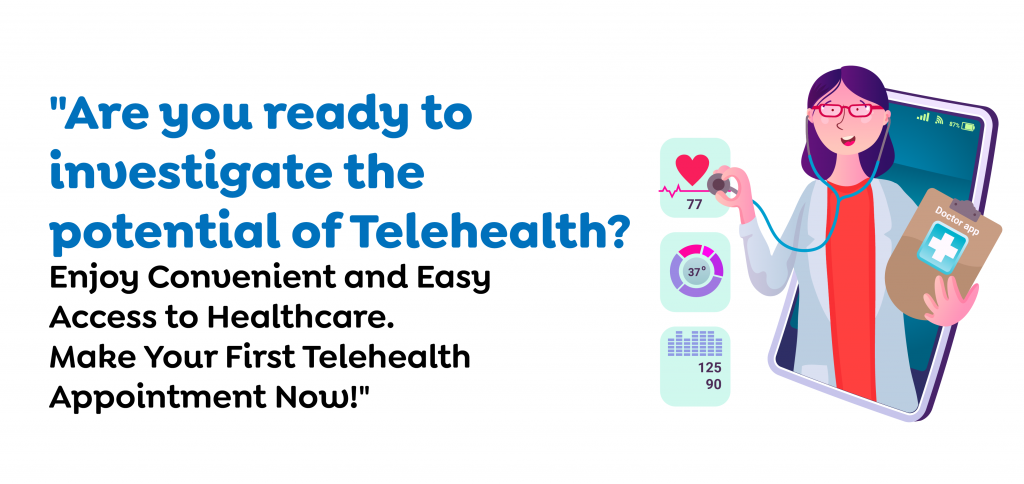
Telehealth is using electronic information and communications technology to provide information and health-related services. It enables patients’ and physicians’ long-distance contact, therapy, counseling, reminders, education, intervention, surveillance, and remote admissions.
The critical technologies employed by Telehealth in the ecosystem include video conferencing, the internet, store-and-forward imaging, streaming media, and terrestrial and wireless networking.
Isn’t it similar to virtual health care? True, virtual healthcare and Telehealth are frequently used interchangeably, but they are not the same thing. You’ll find out why in the following paragraphs.
What is the Difference Between Virtual Healthcare and Telehealth? (Telehealth vs. Virtual Health)
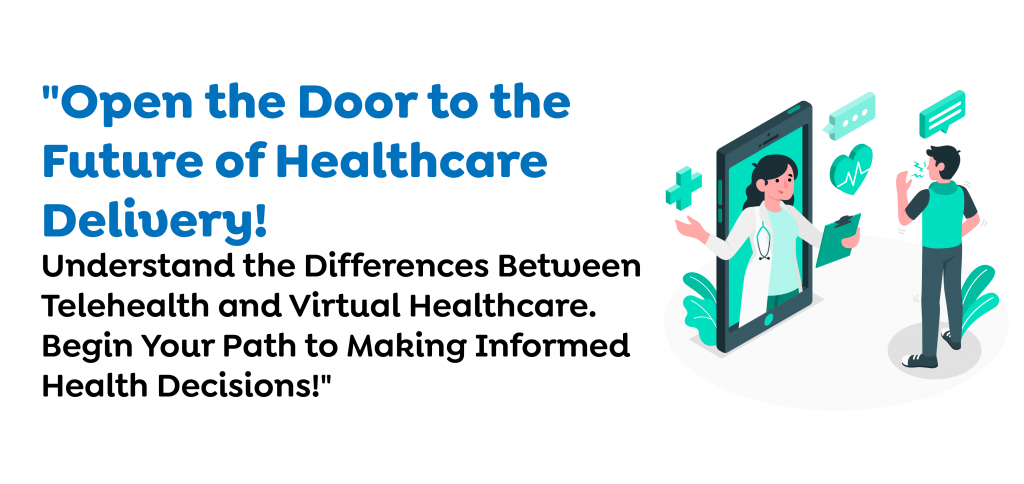
Although virtual healthcare-patient interaction allows healthcare practitioners and members to contact their patients remotely, it is a telehealth component. Telehealth is a broad phrase that encompasses all forms of healthcare that are facilitated by remote access and technology.
When it comes to aims, virtual healthcare delivers services or treatment to individuals who would or be too busy for an in-office visit and without visiting the patient in person. Telehealth, on the other hand, aims to empower individuals who face physical and financial barriers to getting quality healthcare resources with a means to deliver more effective and patient-centered healthcare services.
Another difference between these two is how the process is delivered. Virtual health app is the use of smartphones and other mobile technology to assist healthcare via various healthcare platforms, for example, live audio and video or instant messaging. At the same time, Telehealth focuses on the most recent technical applications, including video communication, IP linkages for cellular and internet, portable medical devices, and web-based networks.
However, the term “telehealth” may soon be rendered obsolete by nearly every care management software because virtual care can provide patient education to encourage patient empowerment, particularly post-COVID-19.
In any case, demand for each is rising.
To put it simply, telemedicine is the delivery of long-distance patient care, whereas digital care refers to a wide range of digital healthcare services.
How Will Virtual Health and Telehealth Services Change the Modern Health System?
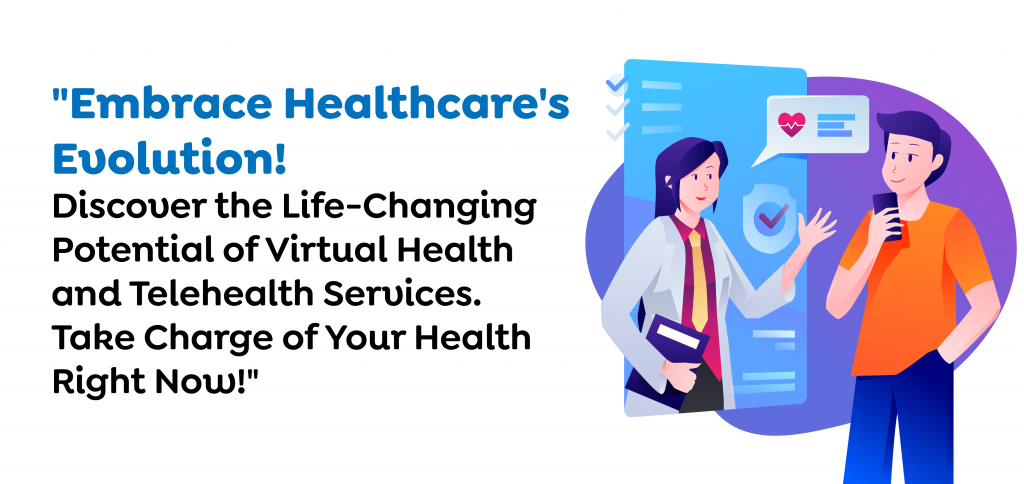
So many things that we had no clue about at the time. We could less focus on illness management due to a shortage of information, database (data point) administrators, and technological services. We were unable to comprehend the symptoms, diagnosis, or therapy. Our medical universe was solely dependent on the knowledge and data set of the past.
People feared ordinary fevers due to a lack of technology and information. However, with the advancement of technology, we can now do tests such as skin tests, blood tests, urine tests, CT scans, and MRIs. As part of the expanding telemedicine sector, these are some of the methods for determining the reason for our symptoms.
Though telemedicine has evolved to include services such as teleradiology, telepathology, and telepharmacy by 2012, there is a significant difference between then and now. Just look at the years of patient acceptance of telemedicine!
Whereas just half a million persons in the United States rejected telemedicine in 2013, we saw a massive increase to 7 million by 2018. Following the success of value-based primary care delivery after Covid 19, there is another increase that will undoubtedly set a new trend by 2025.
Doctors can make better judgments, advance eldercare, and provide consistent patient tracking using digital health treatment provided through telehealth information solutions. With the spread of the covid 19, all of these possibilities took on new significance.
However, the continuity, connection, coordination, and care continuum will make digital healthcare the near-default choice for well-being and care.
What is a Prospective Customer For Virtual Health?
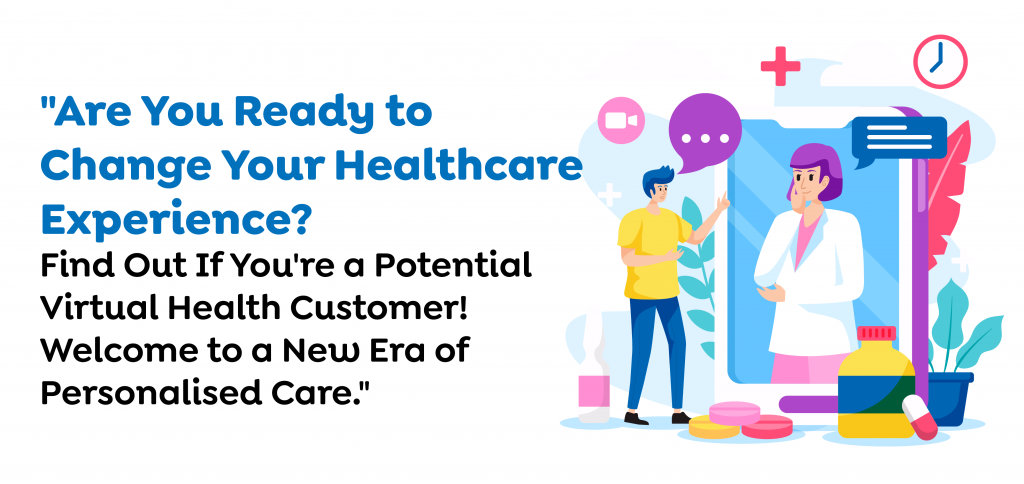
The virtual health approach is not only present but also future-oriented. Do you want to return to where we were before the epidemic regarding health care? Despite its lack of necessity, digital medicine is now impacting the whole healthcare environment and ecosystem.
It only shows the ongoing advancement that has brought various enhanced improvements to create a place for a better healthcare facility, which will now be directed to a bigger audience. Don’t you think so? Consider the following arguments.
- Improved Technology, Better Care
There is little question that emerging technologies such as mobile care, artificial intelligence, and machine learning will significantly impact telemedicine’s future. Some commercial developments and indications, such as mobile connection, are already visible. The capacity to link a patient with a doctor from any location is a significant step forward since the patient no longer has to be in their own homes or go to the health facility for a consultation. It simply implies that the technology will improve patient care.
- Management of Care
At the moment, the majority of digital treatment is focused on minor medical requirements. However, these programs are evolving into chronic care management platforms for patients dealing with more complex illnesses and conditions such as diabetes, major depressive disorder, neurodegenerative disorder, and so on.
Simply developing virtual care systems, software, and applications holds a lot of promise. Consistency is required for any chronic disease therapy in your digital care models.
- Savings on expenses
In numerous aspects, digital healthcare in the ecosystem provides relief from rising healthcare expenditures. Patients no longer have to pay for housing or miss work to see a doctor. Instead of postponing time-consuming travel, people may seek primary care before their symptoms worsen and necessitate more expensive treatment.
Digital healthcare also enables hospitals to provide treatment without overcrowding beds and waiting areas. It improves post-acute care and reduces unnecessary ER visits and readmissions. All of this implies lower costs!
- Pandemic Planning
The COVID-19 pandemic has shown the need for virtual health in pandemic planning. By incorporating telemedicine and remote monitoring into their emergency response plans, healthcare organizations are now better prepared to manage disasters.
- Healthcare Workforce Flexibility
Virtual health allows healthcare workers to operate more freely. It will enable them to access patients regardless of their physical location, which can assist in alleviating healthcare professional shortages in some areas.
The potential of virtual health to alter healthcare into a more accessible, patient-centered, and cost-effective system will define its future. Virtual health will become vital to healthcare delivery as technology advances and healthcare stakeholders adapt to the digital age, boosting patient outcomes and the whole healthcare experience. The convenience, cost savings, and enhanced treatment that it provides are apparent evidence that virtual health is here to stay and will continue to adapt to suit the changing requirements of patients and clinicians alike.
You just read about the future of virtual health apps. You must consider how the Flutter app development company can help you with a virtual health app.
How a Flutter App Development Firm May Assist You with a Virtual Health App
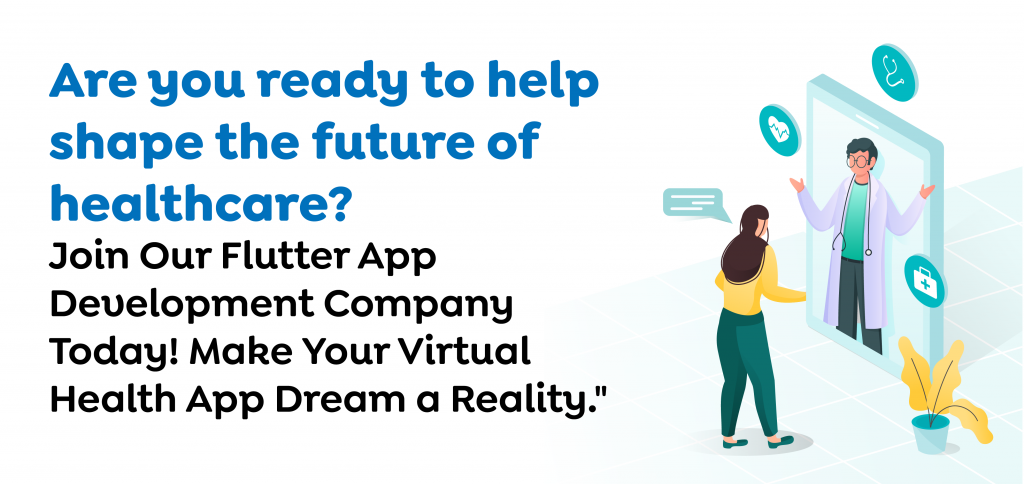
Creating a virtual health app is a complicated and specialized endeavor that needs the collaboration of a trained and experienced team. A Flutter app development company might be an invaluable resource in realizing your virtual health app concept. Here’s how a business like this can help you create a successful virtual health app:
- Flutter Development Experience: Flutter is a flexible and popular framework for creating cross-platform mobile apps. A Flutter app development business is knowledgeable with this framework, which ensures that your virtual health app is produced swiftly and with a consistent user experience across iOS and Android platforms.
- UI/UX Design: In healthcare apps, user interface (UI) and user experience (UX) are critical. A Flutter app development firm may give a design team to construct a user-friendly and aesthetically attractive interface, guaranteeing that patients and healthcare practitioners can quickly use the app.
- Adaptation: To satisfy the specific objectives of your healthcare organization or target audience, virtual health applications sometimes require adaptation. A Flutter development team may customize the app’s features, functionality, and appearance to meet your individual needs.
- Health Data Integration: Virtual health apps may need to link with a variety of health data sources, for example, electronic health records (EHRs), wearable devices, and health monitoring systems. Experienced Flutter developers can ensure a smooth connection to deliver a complete picture of a patient’s health.
- Launch & Deployment: A Flutter app development firm can help with app store deployment (Apple App Store and Google Play Store) as well as marketing and promotion tactics to reach your target audience efficiently.
- Telemedicine Features: If your virtual health app incorporates telemedicine capabilities, Flutter developers may include features such as video consultations, secure messaging, appointment booking, and virtual waiting rooms to give patients and healthcare professionals a smooth experience.
- Remote Monitoring: Flutter developers may construct interfaces for users to submit health data and healthcare professionals to collect and analyze that data for apps, including remote patient monitoring. Real-time warnings for crucial health parameters are also possible.
When you collaborate with a Flutter app development company, you get access to a plethora of experience and resources for the creation of your virtual health app. Their knowledge of app development and the healthcare sector may assist you in developing a safe, user-friendly, and compliant virtual health solution that satisfies the demands of patients and healthcare professionals while adhering to regulatory regulations.
Conclusion
The more pressure there is to advance automation and the standard of digital health use, the more healthcare stakeholders advocate for digital health systems and expect long-term success, especially in light of altering macroeconomic conditions. Do you wish to be one of the ecosystem’s primary change agents? So, enter the virtual health app development world and begin your creative journey! Techugo is a mobile app company that provides various services to assist organizations in creating, optimizing, and launching digital products and services. If you are, Consider making your own Android/ iOS app. If so, Techugo, the iOS app development company, can assist you.
Get In touch
We are excited to here from you and let’s start something special Together. Call Us for any inquiry.
Write us
sales@techugo.caJust a call away
About you




